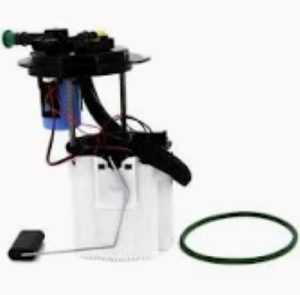By controlling the amount of fuel that makes it to your engine, Fuel pumps greatly contribute towards economy. The fuel pressure testing will generally confirm that the correct psi is being delivered to meet specific engine demands between 30 and 80 points of difference. If pressure inside any zone is low, the engine has to consume a little more fuel to deliver power and this makes it less efficient in terms of its consumption. OEM performance analyses show that a reduction as small as 10% in fuel pressure can boost gas consumption by up to 15%, illustrating the influence of the pump on mileage.
When a fuel pump starts failing, it can cause the engine to run inconsistently due to fuel starvation or random drops in and out of proper long term fuelling levels. Here, the pump cannot supply fuel consistently so that engine has to work more and burn too much of it unnecessarily. With high performance cars or heavy duty trucks where consistent fuel flow is crucial- a bad pump can lead to as much as 20% drop in mileage. Motor industry specialists are suggesting pumps be inspected on a regular basis, due to the fuel economy benefit which well maintained pump can provide and therefore any operational cost savings in this area.
If the fuel pump unable to hold constant pressure, it will result in low idle efficiency as well. This generally leads to an overly rich state (where more fuel is injected than necessary). This inefficiency decreases fuel economy and leads to greater emissions. A study by the Environmental Protection Agency (EPA) found that vehicles with faulty fuel pumps can contribute up to 25 percent more emissions as the air-fuel ratio of an engine is irregular, meaning combustion may be incomplete.

Also, how well a pump can prime as the engine first starts running plays a role in efficiency, especially on short trips. When you turn the engine on, this pump ensures that fuel injectors are primed to be started with correct air-fuel combination; In many circumstances, poorly primed systems result in “dry starts” where an engine has to prime the fuel system for longer durations and as a result suffers needless low efficiency wear on internal parts. Quick, efficient starts is a must in vehicles that get used regularly for short commutes and an unaffected Fuel Pump contributes hugely.
And it is also the main reason how Fuel pump will be greatly responsible for fuel efficiency because missing or reducing pressure, running improperly and shutting off complete hamper right combustion. Reliable and maintained fuel pump that allows the vehicle better mileage consistency AND less emissions, both contributing to optimum engine performance and lifespan.
